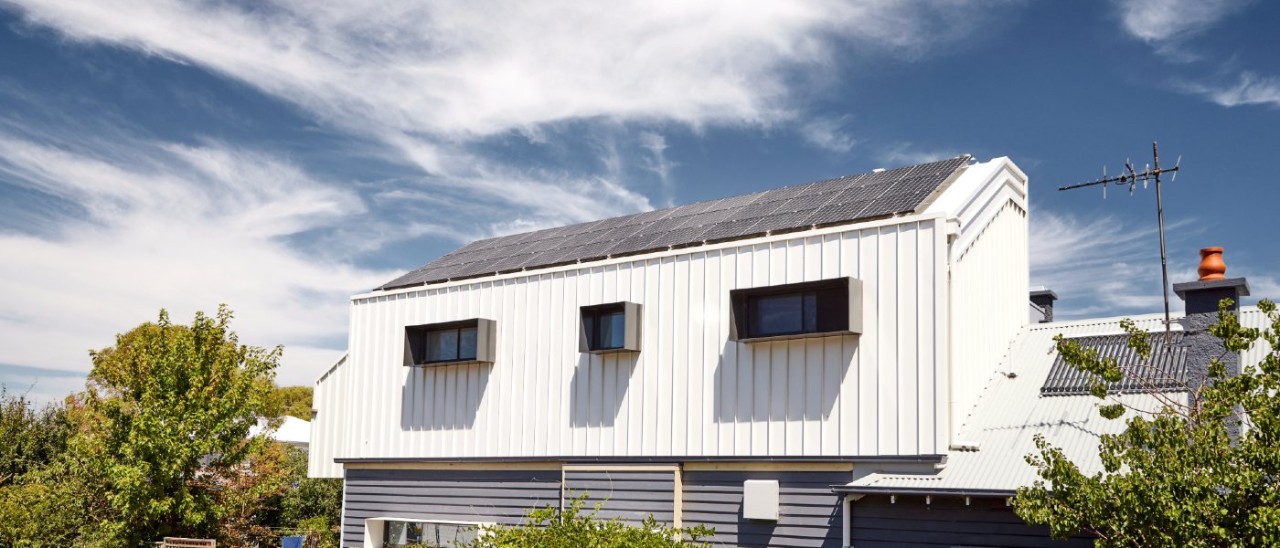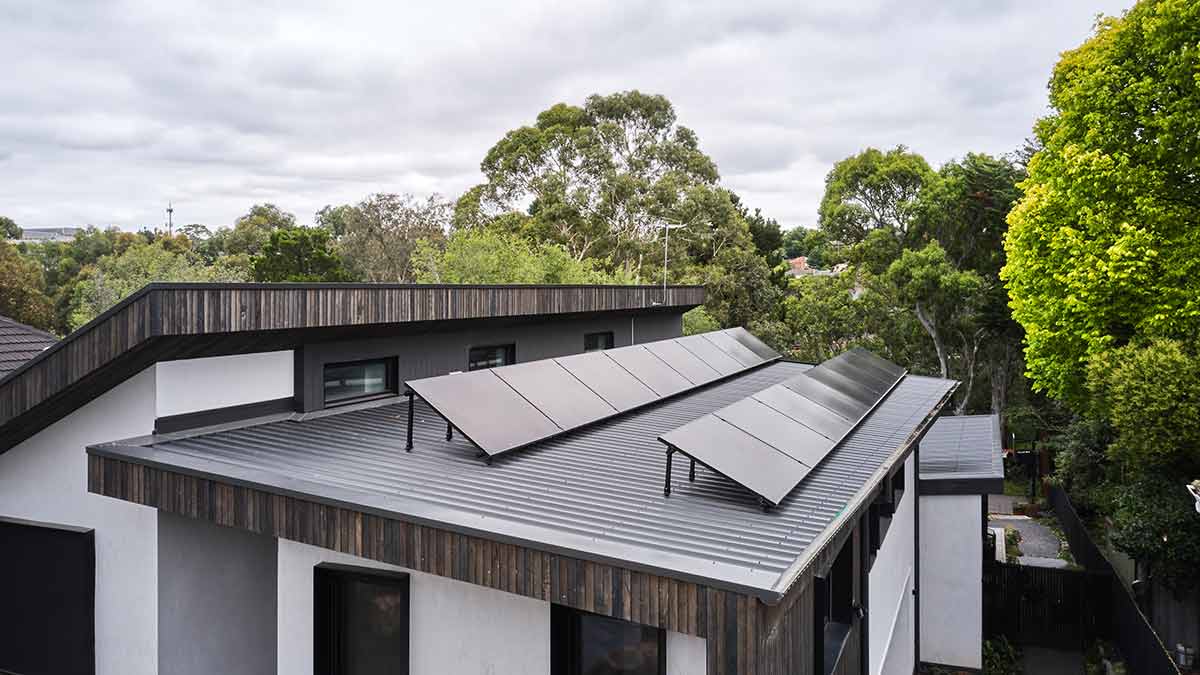The end of premium and minimum solar feed-in tariffs represents a shift in the financial landscape for solar energy users, but it also presents an opportunity to reassess and optimise your solar energy system.
Do solar panels work in winter and how effective are they?

Wondering if solar panels still generate electricity on cold, cloudy or rainy winter days? We answer the top questions about using solar panels in winter.
With around one in three Australian households now using rooftop solar to power their homes, many Australians may be wondering if their solar panels still work during winter and on cloudy days. Contrary to a common misconception, solar panels are indeed capable of producing energy during colder weather as they rely on light, and not heat, to operate all year round.
Find out how solar energy works during winter to help make an informed decision about renewable energy in your home.
Do solar panels work in winter?
How efficient are solar panels in winter?
RACV Solar spokesperson Landon Moss says the efficacy of solar panels during winter depends on several factors, including the angle of the panels, daylight duration, and weather conditions.
"Panels are still efficient in winter and can still generate energy during the winter months, although their efficiency may be reduced due to shorter days, and lower sunlight angles,” Moss says.
The sun sits lower in the sky during winter, affecting the way it hits the solar panels. While the overall efficiency may decrease, modern solar technologies are designed to capture and convert sunlight into energy, even under less-than-ideal conditions.
“Overall, while the effectiveness of solar panels may decrease in winter, they can still contribute to energy generation for your household,” Moss says.
At what temperature do solar panels stop working?
Solar panels are designed to withstand a range of temperatures, so shouldn’t abruptly stop working.
“Cold weather generally doesn't impact solar panels,” says Moss.
“Extreme cold temperatures can affect the panel efficiency, but they typically do not stop working altogether.”
In fact, extreme heat can sometimes reduce their effectiveness more than cold temperatures.
Most solar panels operate effectively in a temperature range between minus 30°C and 80°C, Moss says, meaning the mild winter temperatures experienced in Australia are unlikely to impact.
How much power will my solar panels generate in winter?
In winter, a solar system will generally produce less energy compared to summer due to shorter daylight hours and lower sun angles.
“The amount of power generated by solar panels in winter can vary depending on several factors, including the specific location, weather conditions, orientation of panels, and any shading or obstructions,” Moss says.
While it's true that there might be a decrease in sunlight hours during winter, advancements in solar technology have mitigated this impact.
“In general, solar panels can still generate a significant amount of power during winter months, although their output may be lower compared to summer months,” he says.
The Department of Climate Change, Energy, the Environment and Water (DCCEEW) advises that if you live in an area with less hours of daylight, for example Melbourne rather than Brisbane, then you may need to consider a bigger rooftop solar system to meet your needs.

Solar panels can generate energy on cloudy days and during shorter daylight hours. Image: Matt Harvey.
Does a home solar battery work in winter?
A solar battery may be effective in helping to reduce your energy costs in winter if your solar panels are generating excess energy.
When your solar panels generate more energy than you can use, the unused energy is exported to the grid. Depending on your arrangement with your energy provider, you can receive a feed-in tariff or credit on your bills, which is paid in cents per kilowatt-hour.
However, this feed-in tariff is much lower than what you would pay an energy retailer for electricity imported from the grid, says Moss.
“Excess energy generated from solar panels flows back to the grid for a set feed-in tariff, which is generally a lot lower than what you are charged by the retailer,” he says.
“Having a solar battery means excess unused energy is stored, and can be used for household consumption when the sun is not shining, such as night-time. This benefits the household by not having the need to buy power from the grid at a higher rate.”
Moss recommends batteries from a certified solar provider so you can generate, store and manage your own energy.
“Batteries also provide back-up power during grid outages, supplying energy to essential appliances or the entire home, depending on capacity and configuration.”
Batteries with a back-up function also allow the power to run during a blackout.
More: Guide to Tesla home solar batteries
Does it take longer to charge an EV during winter using solar power?
The electrolytes in EV batteries perform better in warmer temperatures. This means that during winter, EVs can take longer to charge.
Preheating EV batteries before charging generally helps increase charging speed, especially in cold weather.
While your EV can still be charged using solar power during winter, running multiple appliances concurrently during winter may mean you also need to draw additional power from the grid.
Measures like charging your EV during peak daylight hours (generally 10am to 2pm in winter) and installing a solar battery may help mitigate the need to import energy from the grid.
How many kWh of electricity should my solar panels generate in winter?
Professionally installed solar panels that are well maintained can still generate a substantial amount of energy during winter in Australia, and contribute significantly to reducing energy bills.
The ideal kWh (kilowatt-hour) production for a solar panel system in winter varies depending on the size and capacity of the installation.
“The amount of kWh depends on various factors such as system size, efficiency, location, shading and weather conditions,” Moss says.
For example, a 6.6 kW solar system in Melbourne might generate around 15-20 kWh per day in winter, compared to 21-24 kWh in summer, according to Solar Choice.
Why have my energy bills increased in winter even with solar panels?
If your energy bills have increased during winter despite the presence of solar panels, it could be due to various reasons.
One common factor is increased energy usage. “During winter, households often use more energy for heating,” Moss explains. “This additional usage can offset the electricity generated by solar panels, leading to higher overall energy bills.”
Additionally, shorter daylight hours and potential shading issues could impact solar panel efficiency.
“Due to shorter days and the lower angle of the sun, your panels might reduce their efficiency, resulting in lower power generation.”
Regular maintenance, checking for shading, and optimising the solar panel system can help address these concerns and ensure best performance. Having your heater serviced can also improve its efficiency and reduce running costs.


